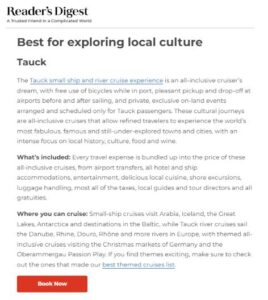
Boost your rankings and attract more customers through our SEO expertise.

In the evolving world of search engine optimization (SEO), authority has emerged as a cornerstone of a website’s ability to rank and draw traffic. It’s a badge of trust from the internet to your content, a signal to search engines that your site is a source of valuable information.
But how exactly do you establish and increase your website’s authority? Let’s delve into the concept of SEO authority and break down its intricacies, find out how it’s measured, and learn how to enhance it effectively.
When evaluating a site, Google uses hundreds of factors to determine where you will rank. At a very high level, these can be summarized by three pillars: authority, relevance, and experience. We will focus on authority today—a critical aspect that can make or break your content’s visibility on the web.

Authoritativeness is Google’s measure of how well known and trusted a source is on a particular topic. This is measured based on links and mentions as well as reviews and other indicators of authority.
SEO is a multifaceted discipline that requires concerted efforts across various fronts. One important aspect of this optimization effort is the building of authority, which typically occurs off-site.

Building authority extends beyond the confines of your own site, involving strategic off-site optimization. This includes cultivating high-quality links, engaging with communities, and fostering brand mentions across the web. These actions serve as endorsements of your site’s credibility, urging search engines to regard your content as authoritative and, by extension, worthy of a high ranking.
Subscribe to our monthly newsletter.
Understanding how search engines measure authority can empower you to enhance your SEO strategy effectively.
Google evaluates the quantity of links and citations pointing to your site as well as the quantity of domains linking to your site. All things equal, sites with greater amounts of (quality) links and citations will rank higher than sites with lower numbers of links.
Google tries to avoid giving credit to artificially increased backlink profiles. Types of links and mentions that may be devalued include spam, paid linking, or link-sharing schemes.
Google evaluates the relevance of links and citations pointing to your site. Mentions from sites related to your industry will be given much greater weighting than links from unrelated websites.
Google evaluates the prominence of links as an indicator of how important the site feels the link is. Links buried in footers, below the fold, or deep within a site will be given less relevance than prominent links.
Links from websites deemed authoritative to the topic will be given greater weighting. These include government and news sites but also include authoritative industry websites.
To wield the full power of backlinks, it’s essential to understand the characteristics of an ideal link.

These criteria ensure that a backlink will not only contribute to your site’s SEO performance but also drive relevant traffic and enhance user engagement.
In addition to optimizing for ideal links, there are other sources through which you can build your site’s authority.
Although usually “buried” within a Newsroom section, links from Press Releases do build authority. When establishing relationships with new partners, attempt to each publish a press release about the partnership, linking to each other’s websites.
These are not given as much weight as a full article but do help in establishing authority and relevance. Attempt to have links to your site included in any Influencer Outreach programs established to maximize value of relationship.
These are not given a great deal of weighting as these links are typically “buried” in a tertiary section of the website. Reserve for high-authority websites and partners.
In conclusion, establishing SEO authority is not about quick fixes or accumulating links haphazardly. It’s a strategic process that involves building a network of quality, relevant, and well-placed links. These should come from a variety of sources, including press releases, blog posts, and partner pages, which all contribute to the perception of your site as an authoritative figure in your niche.
By focusing on the quality, relevance, and placement of backlinks—and by aligning your content with the needs and interests of your audience—you create a strong foundation for SEO success. Remember, authority is not just a one-time achievement; it’s a continuous pursuit that can significantly impact your site’s ranking and visibility in the long term.
Boost your rankings and attract more customers through our SEO expertise.
Subscribe to our monthly newsletter.